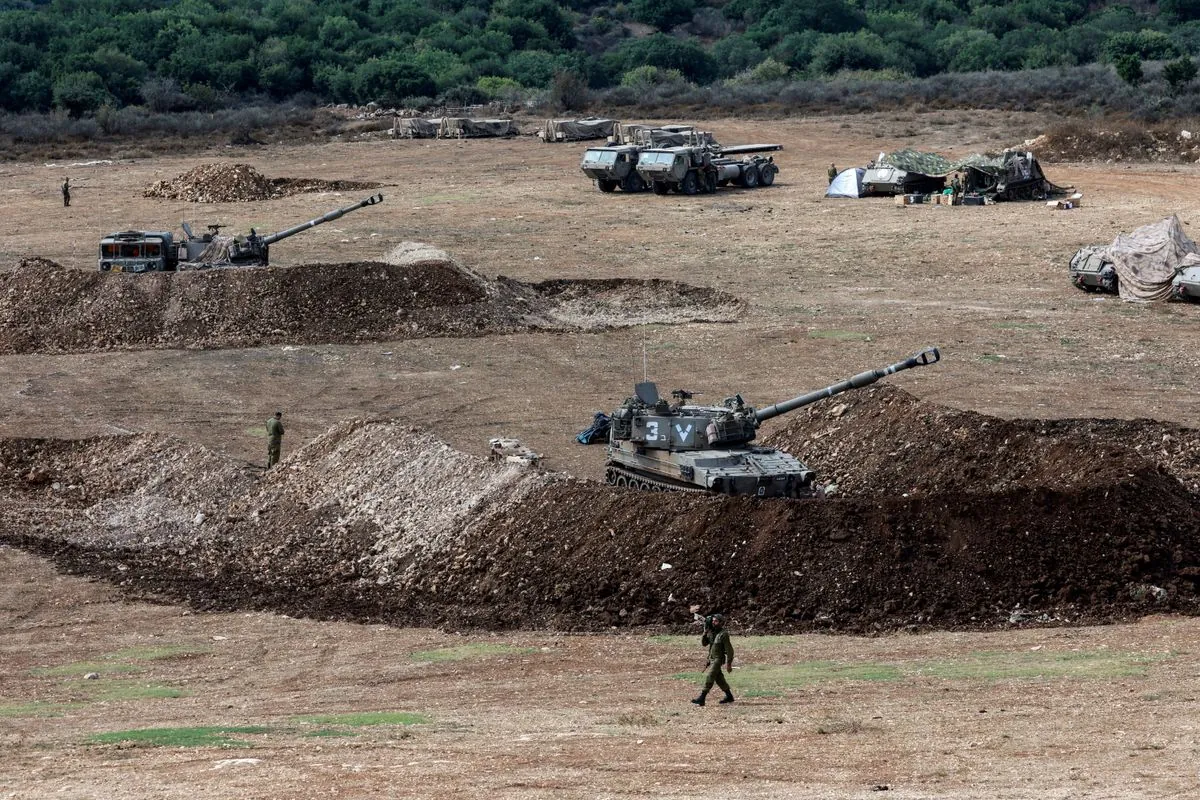On October 2, 2024, the Israeli military announced an expansion of its ground operations in southern Lebanon. This development marks a significant escalation in the ongoing conflict between Israel and Hezbollah, a Shia Islamist political party and militant group based in Lebanon.
According to military sources, regular infantry and armoured units have joined the operation, which remains limited and localized in scope. The addition of these forces suggests an intensification of military activities along the approximately 120-kilometer-long Israel-Lebanon border.
The units involved in this expansion include elements of the 36th Division, specifically the Golani Brigade, the 188th Armoured Brigade, and the 6th Infantry Brigade. The Golani Brigade, known as one of the most prestigious infantry units in the Israel Defense Forces, brings significant combat experience to the operation.
This announcement follows the previous day's disclosure of commando and paratroop units crossing into Lebanese territory. It was also revealed that special forces had been conducting covert ground raids against Hezbollah targets for several months prior to this public acknowledgment.
During these operations, Israeli forces reportedly uncovered tunnels and weapon caches hidden beneath residential structures. This discovery highlights the ongoing security concerns Israel faces along its northern border, particularly regarding underground infrastructure.
"Our operations are focused on destroying tunnels and other infrastructure on the border. There are no plans for a wider operation targeting Beirut or major cities in southern Lebanon."
The use of tunnels by militant groups has been a persistent issue for Israel, prompting the development of advanced tunnel detection technology. This technology has likely played a crucial role in the recent discoveries.
It's important to note that this is not the first time Israel has engaged in military operations in Lebanon. The 2006 Lebanon War was a significant conflict between Israel and Hezbollah, lasting 34 days and resulting in substantial casualties and displacement.
The current situation is complex, with historical context dating back to Israel's 18-year occupation of southern Lebanon, which ended in 2000. The establishment of the Blue Line by the United Nations in the same year attempted to delineate the border between the two countries.
The United Nations Interim Force in Lebanon (UNIFIL), present since 1978, continues to monitor the situation along the border. However, its effectiveness in preventing conflicts has been limited.
The Lebanese Armed Forces have a restricted presence in southern Lebanon, where Hezbollah maintains significant influence. This power dynamic complicates efforts to maintain stability in the region.
As tensions escalate, the international community watches closely. The potential for wider conflict looms, reminiscent of past wars that have shaped the region's history, including the 1982 Lebanon War that led to Hezbollah's creation.
While Israel emphasizes the limited nature of its current operations, the situation remains volatile. The use of advanced military technology, such as the Iron Dome defense system, underscores the ongoing security challenges in the area.
As events unfold, the impact on Lebanon's complex confessional political system and the broader geopolitical landscape of the Middle East remains to be seen. The disputed Shebaa Farms area continues to be a point of contention, further complicating relations between Israel, Lebanon, and Syria.
